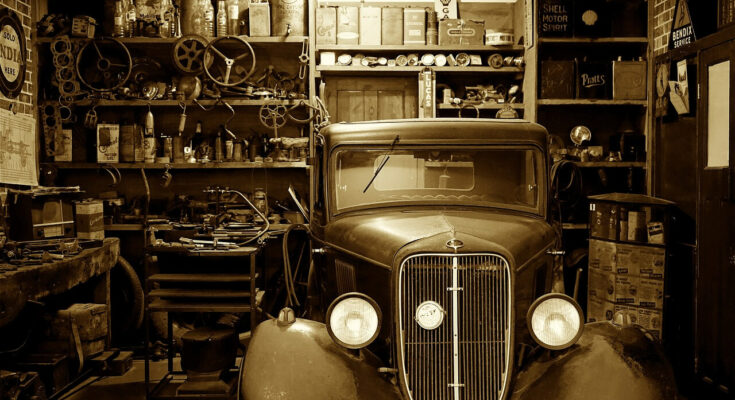DIY mechanics need a lot of basic tools – socket sets, impact wrenches, pliers, floor jacks, and more. Once your automotive toolbox is full of all these basic tools, it’s time to start stocking up on specialty tools that might not be the first thing you reach for but will come in handy, especially as you do more and more automotive work on your own. Every good mechanic needs these specialty tools in his or her garage.
Magnetic Pickup Tool
You should invest in a magnetic pickup tool now before you need one. That way, the first time you drop a nut, bolt, or other small metal object down inside an engine block, you’ll be ready. A magnetic pickup tool might be the only way to retrieve it.
Air-Powered Scaler
An air-powered scaler looks a little weird with dangly bits at one end, but those dangly bits are very effective at powering rust off surfaces. When you need to clean the rust off a piece of metal, an air-powered scaler can do the job, and many also come with chisel attachments.
Suggestion: 2024 Dodge Charger Or Dodge Challenger – Which Is Best?
Bent-Handle Flex Ratchet
You sometimes need more leverage than an ordinary, short ratchet handle will allow. But you don’t always have room under the hood for a long ratchet handle extension bar. A bent-handle, flex ratchet solves these problems. You’ll be able to use the flex head to reach any nut or bolt that’s in a difficult-to-access position. The bent handle will give you more leverage.
Flex Sockets
Flex sockets are a little bendy, so you can use them to reach into tiny crevices that you may not be able to access otherwise. With a shorter profile and a joint that lets them bend in half, you can tuck flex sockets into any small space where a nut or bolt might be hiding.
Finger Ratchet
A finger ratchet takes the handle off the ratchet handle, leaving just the ratchet. You use your fingers to twist it like operating a bottle cap. It can be the perfect tool for getting at nuts and bolts in tight places.
Also Check: 11 Best Overland Vehicles 2024 – Quick Guide For Off-Road Lovers
Pulley Pullers
Many parts of a car are pressed onto or into place at the factory, so you can’t pull them loose using brute force alone. It’s just not possible. Pulley pullers allow you to grab these pressed-on and pressed-in elements to remove them.
Vacuum Pump
If you want to change your own brake or power steering fluid, you’ll need a vacuum pump. Those are closed, pressurized systems, so you’ll need a vacuum pump to safely drain the lines and refill them with fresh fluid. You can also use a vacuum pump to test for leaks in your vacuum lines or in other parts of the engine that are pressurized.
Pickle Fork Tool
A pickle fork tool can help you separate ball joints, remove tie rods, pull apart pitman arms, and more. You usually buy pickle fork tools in sets and they’re pretty simple to use. A simple tool, the pickle fork is nevertheless very effective.
Spark Plug Pliers
Spark plug pliers can help you remove boots from your spark plugs without damaging the wires, which can be tricky with a regular pair of pliers. Damaging the wires can mean added time and expense to a spark plug change. Spark plug pliers can also help you disconnect the boot when it has melded with the spark plug.
Tubing Cutter
A tubing cutter allows you to cut tubing cleanly when you’re working on brake lines, exhaust pipes, and the like. Instead of using a hacksaw, use a tubing cutter for a more even result.
Suggestion: 7 Best Car Amplifiers For Perfect Sound – Review & Expert’s Guide
Fuel Line Disconnect Tool
Fuel lines are another thing you shouldn’t be trying to disconnect with a normal pair of pliers. You can damage the connections if you try to yank fuel lines off with a pair of pliers. Instead, spend the money on fuel line disconnect tools for your vehicle. They’ll make it easier to get your fuel lines disconnected and they won’t cost much.
Hose Remover Tool
Hoses can also sometimes meld with the pipe they’re connected to. A hose remover tool is a hook that you can poke under the lip of the tube, running it around the whole pipe to free the tube from the pipe. Then you can just pull the hose right off, all without damaging the hose.
If you’re a DIY mechanic, it’s time to splurge on some specialty tools. Some tools might only be appropriate for one job, but they make that one job so easy it’s worth it – and they’re often necessary in any case! Get the right tools in your toolbox and make quick work of your home auto repairs.


















